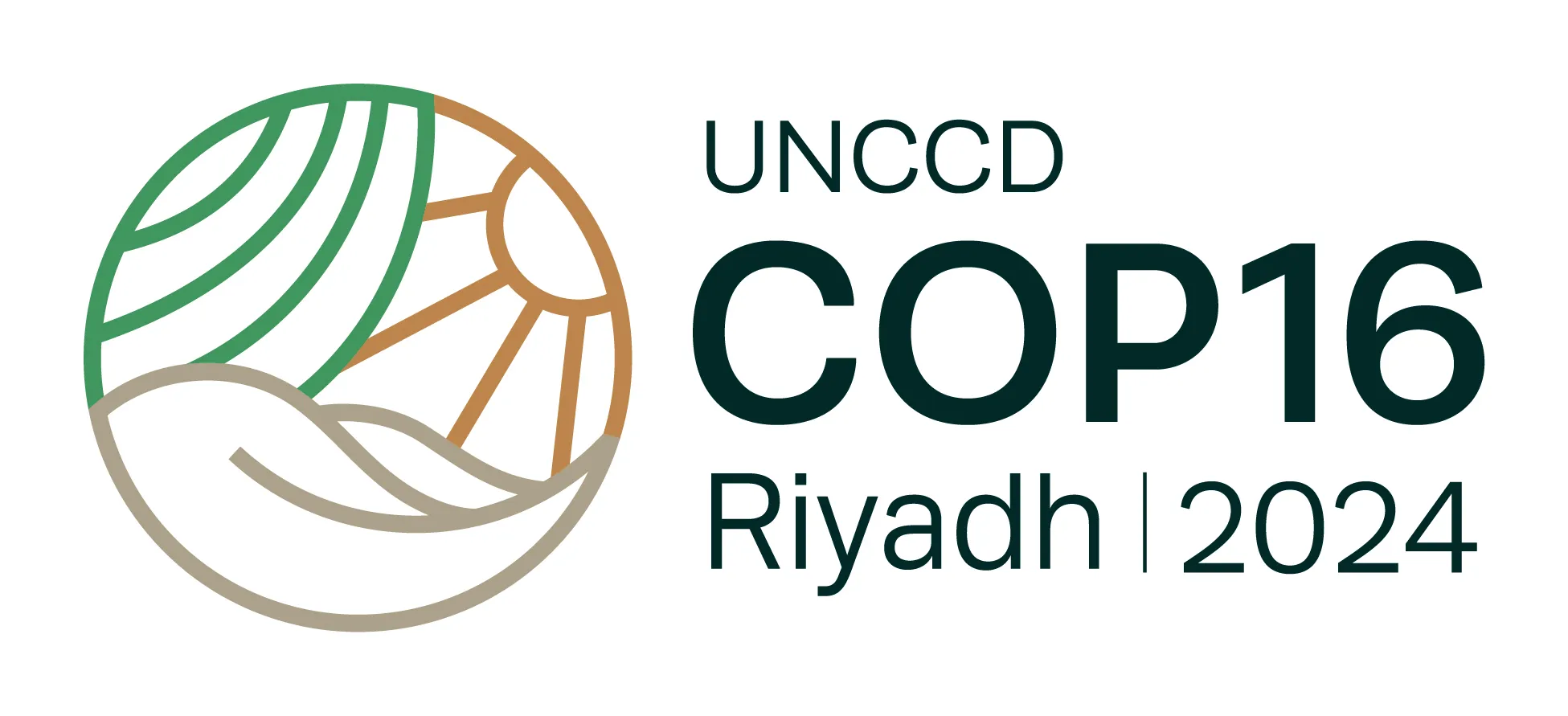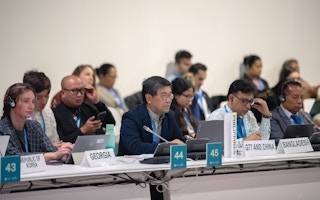Drought is no longer an occasional disaster. With more than 30 nations, including major economies like the United States, Canada, Spain, and emerging economies like India, declaring drought emergencies in the last three years alone, this issue is now a formidable challenge that demands urgent, long-term action.
In Nigeria, the devastating impacts of drought touch agriculture, water security, health, and even the economy, raising alarm bells that can no longer be ignored.
To address the expanding drought crisis, world leaders gathered in early October at the Drought Resilience +10 Conference in Geneva, taking stock of progress made over the past decade and mapping out actions for the next ten years.
Organized by the World Meteorological Organization (WMO), the Global Water Partnership, and the United Nations Convention to Combat Desertification (UNCCD), the event spotlighted core strategies that countries must adopt. The insights from Geneva are poised to shape the negotiations at the forthcoming UNCCD Conference of the Parties (COP16), slated for December 2nd – 13th in Riyadh, Saudi Arabia.
In a world grappling with water scarcity, these expert views on drought preparedness and resilience will hold crucial relevance as Nigeria contemplates its approach to drought management in both urban and rural areas. Ahead of COP16, here is an overview of the evolving global understanding of drought and the opportunities for Nigeria to strengthen its resilience in the face of this silent yet deadly disaster.
Drought: A ‘New Normal’ in Nigeria and Beyond
Historically, droughts have been framed as rare, unexpected events, affecting specific regions or seasons. However, as Kaveh Madani, Director of the UNU Institute for Water, Environment and Health (UNU-INWEH), warns, droughts have now evolved into a “new normal.”
This understanding is critical for Nigeria, where farmers in the North and even urban centers in the South have increasingly felt the impacts of drought. It’s a continuum rather than a one-off catastrophe, with cascading effects on food production, water security, and even employment.
“Too often, droughts are viewed as anomalies,” Madani explains. “But water bankruptcy situations are now becoming permanent.” For Nigeria, this recognition means that policies must be proactive rather than reactive, anticipating and adapting to the certainty of more frequent and severe droughts.
Mark Svoboda, Director of the U.S. National Drought Mitigation Center, underscores the point: “We need to deal with drought before it happens, not just when we enter panic mode.” For a nation like Nigeria, which depends heavily on seasonal rain-fed agriculture, proactive drought policies will be crucial to preventing the type of food insecurity crisis that can lead to inflation and social unrest.
Drought as a Development and Security Issue
In Nigeria, the lack of water doesn’t merely impact crops and livestock. Drought exacerbates migration, contributes to resource-based conflicts, and jeopardizes livelihoods in regions where subsistence farming is a lifeline. According to Andrea Meza, Deputy Executive Secretary of UNCCD, “Drought is not merely an environmental matter. It is a development and human security issue that we must tackle across all sectors and governance levels.”
For Nigeria, which has a predominantly youthful rural population, protecting land and water resources goes beyond agriculture. It’s a question of creating sustainable livelihoods that prevent forced migration and promote stability. As Secretary General of WMO Celeste Saulo notes, “It’s critical to address water scarcity within the broader context of sustainable development and global targets.” From the Sustainable Development Goals to Nigeria’s climate and land management goals, drought resilience will be central to a sustainable future.
Aligning Drought Action with Global Agendas
The Geneva conference highlighted the need to elevate drought management on global and national agendas. In recent years, drought has gained prominence, featuring prominently in discussions at the G20 in Brazil, and prompting resolutions in the European Union on drought resilience and land degradation neutrality (LDN) by 2030. These moves underscore a global recognition of drought’s far-reaching impacts and a commitment to robust policies for resilience.
For Nigeria, aligning national actions with global efforts at COP16 can offer valuable support and resources. Integrating drought strategies into Nigeria’s climate action plan, which already targets deforestation and emission reduction, could also encourage global partners to invest in Nigeria’s environmental and water resilience. As Rachel McDonnell, Deputy Director General at the International Water Management Institute (IWMI), warns, “Policies must trigger change on the ground, otherwise people will continue to suffer.”
Investing in Long-term Resilience
Historically, short-term relief efforts have dominated drought response worldwide, but experts argue that sustainable solutions require a long-term view. Daniel Tsegai, a drought expert with UNCCD, cautions that “drought relief doesn’t promote self-reliance” and often increases vulnerability by creating dependency on government or donor support. Instead, Nigeria’s drought management strategy should aim to empower communities, fostering resilience rather than reliance.
For example, robust investments in water management infrastructure, such as reservoirs or efficient irrigation, can make a significant difference in the lives of farmers and rural communities. By embedding these changes into local governance and community projects, Nigeria can adopt a long-term resilience approach that adapts to shifting environmental conditions, including increasing temperatures and unpredictable rainfall.
Nature-based Solutions for Sustainable Land and Water Use
Drought is not merely a matter of limited rainfall but a symptom of broader ecological issues, including land degradation and poor water management. Sustainable land use and ecological restoration are key elements in combating drought. For Nigeria, where deforestation and desertification remain pressing concerns, nature-based solutions, such as reforestation and wetland conservation, could play a major role in drought resilience.
These solutions are cost-effective compared to large infrastructure projects, offering both economic and ecological benefits. Land restoration techniques could increase the resilience of arid zones in Nigeria, while restored wetlands could improve water availability during dry periods. These approaches are also aligned with international goals, as UNCCD’s Andrea Meza notes, promoting synergy among global agreements on climate, biodiversity, and land use.
Data and Technology for Impactful Drought Management
The next decade will require advanced, data-driven drought monitoring to ensure that drought warnings reach the communities most at risk. Early warning systems have made remarkable progress, but gaps remain, especially in vulnerable regions like Nigeria. Robert Stefanski, Chief of WMO’s Agricultural Meteorology Division, emphasizes the need for regular vulnerability and impact assessments to understand who is most at risk. This approach will allow Nigeria to respond proactively, targeting resources where they are needed most.
Data-driven approaches, coupled with artificial intelligence (AI), offer promising avenues for optimizing water use, predicting drought patterns, and making informed decisions at the policy level. As Alan AtKisson, Secretary General of GWP, suggests, AI could be a game-changer for water governance. The challenge for Nigeria will be ensuring that these technologies are accessible and tailored to the specific needs of local communities.
Health Implications and Gender-responsive Drought Plans
Droughts take a toll not only on the economy and the environment but also on public health, with rural women and girls disproportionately affected. According to Qudsia Huda, Head of Disaster Risk Management at the World Health Organization (WHO), drought intensifies respiratory illnesses, mental health challenges, and waterborne diseases. For Nigeria, addressing these health impacts requires gender-responsive plans that recognize the unique burdens women face.
Empowering rural women and ensuring they have access to health services, mental health support, and safe water sources will be essential to Nigeria’s drought resilience. These measures will also contribute to achieving broader health and gender equality goals, strengthening Nigeria’s capacity to withstand future droughts.
The Road to COP16: A Critical Juncture for Nigeria
As the world heads to COP16 in Riyadh, Nigeria stands at a pivotal moment. The summit presents a unique opportunity for Nigeria to advocate for increased global support in its fight against drought. With its own land and water resources at stake, Nigeria must join the call for ambitious drought policies that prioritize sustainable development, address human security, and foster climate resilience.
Andrea Meza of UNCCD rightly captures the urgency of the moment: “Building drought resilience is a long-term process that requires a clear and common vision.” For Nigeria, achieving that vision will mean mobilizing resources, strengthening local governance, and empowering communities to adapt to a future where droughts are no longer the exception but the rule.
By Dare Akogun








